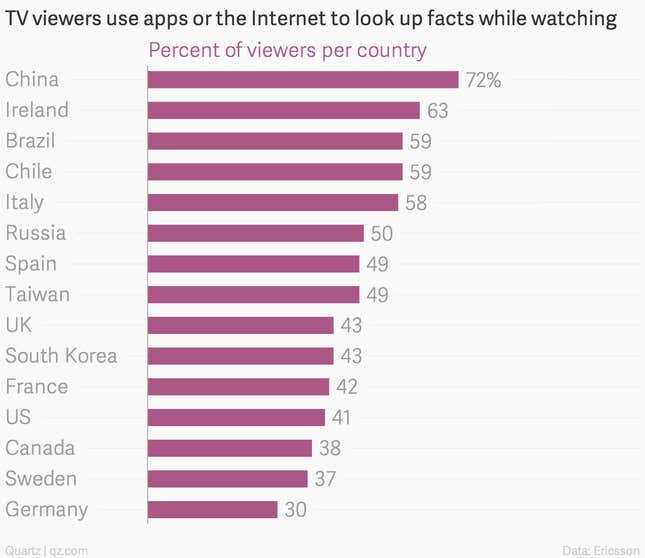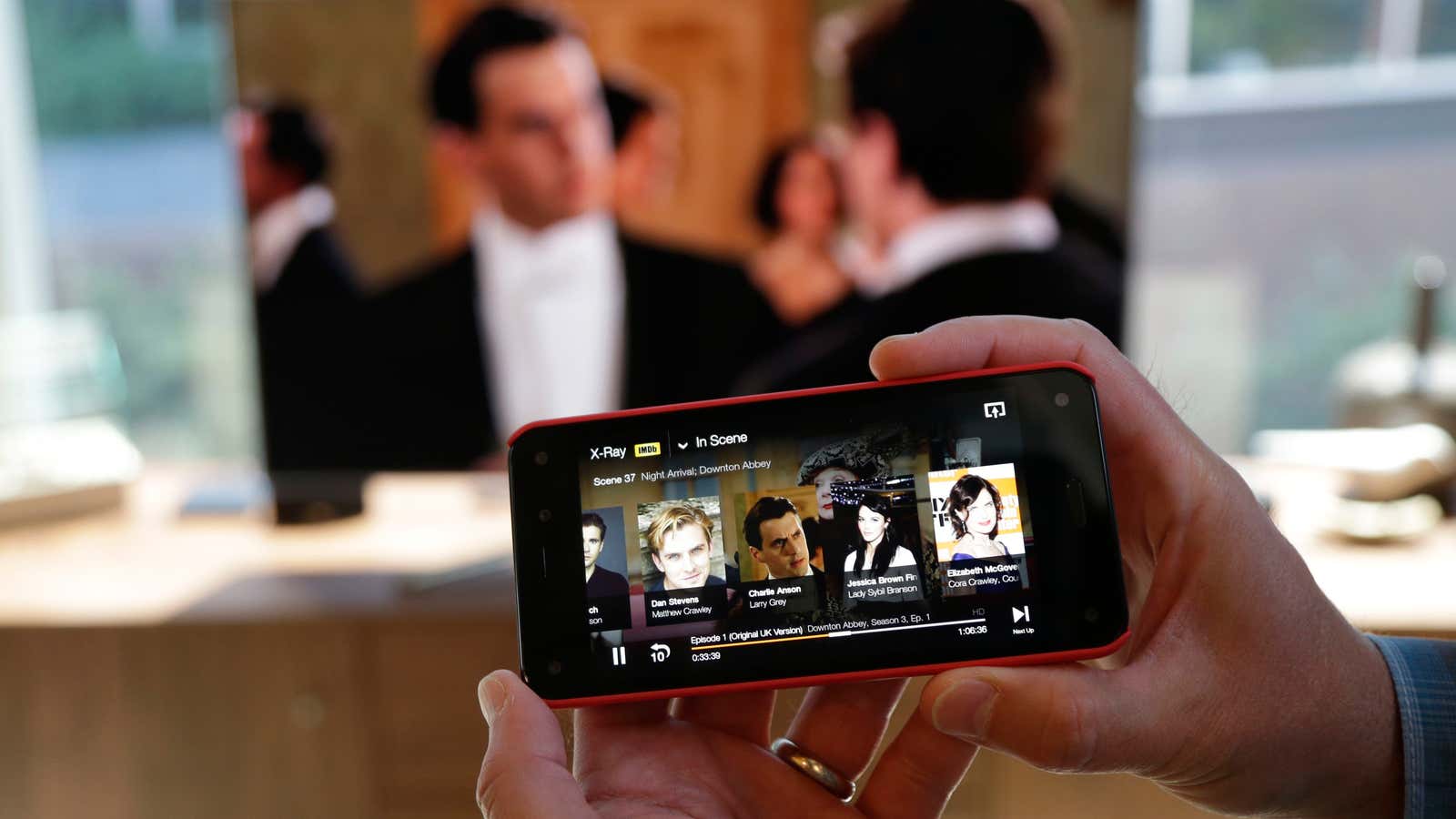If you’re watching TV, it’s probably not the only screen you’re looking at. Most viewers nowadays are online on some device while they watch, a growing trend that advertisers and networks are trying to take advantage of. Knowing that audiences have this “second screen” can also affect a director’s narrative choices.
The documentary Terror at the Mall, airing on HBO on Monday, will provide perspectives on the terrorist attack on the Westgate Mall in Nairobi, Kenya last year, through security camera footage and personal narratives of the people on those videos. But unlike more traditional documentaries, viewers will only see historical or political context through the words of the people who were in the mall, as they recount the reasons the gunmen gave for the attack. For the history of Kenya and Somalia’s conflict, or background on the group who sent gunmen to open fire on civilians, viewers will have to turn to their phones or computers. That expectation allowed producer and director Dan Reed to skip some of the more dutiful aspects of telling the story.
“The way you watch television shapes the way you make a television program,” Reed told Quartz after a recent screening of the hour-long documentary. “And I know that when I watch a show now… if there’s something I don’t know, I will Google it.”
Indeed, in a 2013 survey of TV viewers worldwide, 75% multitask on mobile devices when they’re watching, and 49% said they use the Internet or an app to look up information about the content they’re watching.

(Some of these numbers—Brazil, Chile, China, Russia and Ireland—reflect only urban viewers.)
Relying on this “second screen” experience, Reed had the freedom to take his documentary style a step further. His approach has always been to focus in the personal stories that come from video footage and narratives of terrorist attacks—he has also made documentaries about the 2002 siege of a Moscow theater and the 2008 attack on a Mumbai hotel—but he said this documentary provides even less background and context than the those two, allowing him a sharper focus on the human stories of the day.
“I think it enables you to concentrate on what you can do on screen, rather than to have to provide a lot of information which would be conveyed through text,” Reed said. In the future, he said, he may provide contextual materials for viewers to glance at while watching a documentary.




